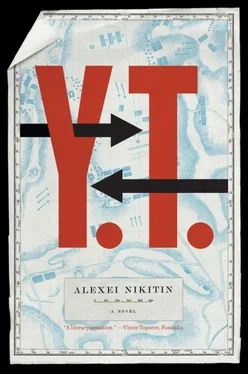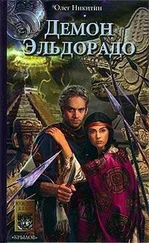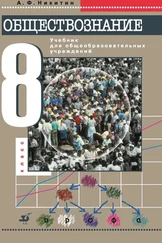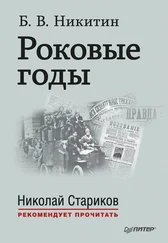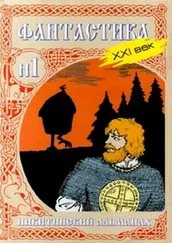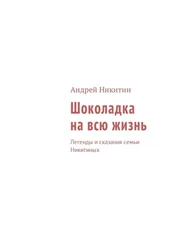After Vera finished her dissertation she found a post-doctoral post in Germany and spent a year in Western Europe. Larissa and Vakha moved in with her father in Kiev. It got a little easier then, but it was still impossible to find a job for Vakha. What could they do? He couldn’t spend the rest of his life sitting at home—he was a healthy man, even if he only had one leg. Then a friend of Vakha’s turned up from somewhere. He was hauling nuts in GAZelle minibuses and selling them in Kiev, Minsk and Latvia. It was a proper business, nothing criminal about it, and the people involved were all his own men—Chechens. And they all lived together. Just like they used to do.
‘So now what?’ I asked Vera, as if I hadn’t bid farewell to Larissa and Vakha that very morning in front of their new home in Vostochni.
‘Wait and see,’ she said with a shrug. ‘Maybe they’ll put down roots, maybe they won’t… Who knows. It’s hard being away from home,’ Vera concluded unexpectedly. Over the past two years she had acquired experience of her own. It wasn’t the same kind of experience as Larissa and Vakha’s, not at all. But that’s how experience is; everyone has their own.
After a long pause I nodded at a road sign. ‘We’ll be in Yalta soon. Shall we spend the night there?’
‘Let’s. But can you choose the hotel? I never get it right. I remember this one hotel, it was called the Oreanda…’
Suddenly I had an idea. ‘I know. Last autumn our chiefs held a managerial conference for the Eastern European branches at the Levantine.’
‘Where’s that?’
‘On the waterfront just after the Oreanda. It’s excellent. The money’s Russian, the service Ukrainian.’
‘I can see it now…’
‘No need to be sarcastic. It’s seriously business class. From autumn to spring it’s just wonderful.’
‘And in the summer?’
‘I wouldn’t stay there during the summer. The windows look out over the sea, to the south-east, and I don’t like it when the sun blazes through the windows, especially in the morning. There you are, sleeping, and suddenly it’s like someone’s turned a light on inside your head. Even if you hide the sun behind heavy drapes and the room has air conditioning, I still don’t like it. In the south, windows should look on to tennis courts…’
‘…with palms and fountains and peacocks.’
‘Yes. With palms and fountains. And peacocks—except at night the peacocks should be blindfolded or wear little hoods over their heads so they won’t noisily greet the dawn.’
We cruised through the city on the south coastal highway, and then, weaving through the colonnades of sanatoriums and guesthouses, we made our way down almost to the sea itself. Just before the waterfront we turned into the Levant. We had arrived.
It was growing dark in the east and the sky was turning a deep blue. Across the sea and shoreline lay the first shadows of March twilight. The sound of waves breaking gently on the shingle was just audible. We took two small rooms on the first floor, left our things and went into the town.
By the end of that first joyful year after I got out of the army I suddenly realized there were areas of Kiev I knew my way around perfectly at night but never went to during the day and would scarcely even recognize. Yalta was like that. For me it has always been a nocturnal city, its streets and buildings presenting themselves not as crumbling façades, a pastiche of architectural styles and the sight of underwear drying on balconies but as a symphony of lights—street lamps, windows, fiery lines of night-time advertisements, ships at anchor languishing in port and, finally, the moon. At night my judgment becomes clearer, and I find my way more surely, through everything—the flashing lights of cities, the cities themselves and the people who inhabit them. Night pares away the unnecessary and leaves behind what matters.
An hour and a half before dawn we returned to the hotel. Even though I’d spent two days behind the wheel and hadn’t slept a wink all night, I was ready to jump right back up again and drive off somewhere, go swimming or walking, anywhere I felt like going. The sense of freedom I’d thought long forgotten was back. Routine no longer existed, no regular responsibilities or commitments enslaved my liberty. I felt a sense of power; I’d gained power over my circumstances. It was no longer I who depended on circumstances, but circumstances that depended on me. And this was all down to a petite woman with chestnut hair and dark-brown eyes that reflected the cool shadows of a spring time night in Crimea.
In the morning we drove to the peak of Ai Petri. In the Crimean Mountains it was still winter. The snow lay wetly on the mountain plateau and above heavy flocks of fog swept swiftly and silently. At the meteorological station children and adults were bustling around and dogs were barking. Slowly we passed by a small ugly bazaar, continued north a few more kilometers, and then I stopped the car.
A sharp, penetrating wind sliced my face. The mountain slopes bristled with the dark green of pine. On the slanting dome of one of the summits a few gloomy structures jutted out—scattered caravans and radar sets.
‘People certainly know how to spoil… everything,’ said Vera suddenly. ‘They make it ugly with their very presence. The hills, the sea… how beautiful it was here without us. We’re probably a disease, a virus. We’ve contaminated the Earth and won’t rest until we’ve destroyed it all.’
I didn’t tell her, but I recalled having similar ideas on Kamchatka some fifteen years before. I’d clambered up an unnamed volcano and looked out with a sense of anguish upon the unsullied Breughelian greenery of the coast near the smooth-sloped Avachinsky volcano and its neighbors and then upon the filthy city, a disgusting fungus that had sprouted along the coast with jerry-built five-storey buildings, their panels cracking and the black and greasy smoke from the boilers …
‘But how beautiful the horsemen looked here.’
‘The horsemen?’ said Vera without comprehension.
‘The horsemen of Istemi,’ I said, opening the car door. ‘Let’s go. I’ll tell you about it on the road. Today it’s my turn to tell stories.’
We headed farther north then around in a big loop and returned to Yalta after lunch. I told Vera the entire story, from the very beginning up to the events of three days ago and my conversation with her father at the Home Cooking Café in Podol. I didn’t mention that until very recently I had considered the professor to be the instigator of all our troubles, nor did I mention his connection to the KGB. The first point was my error, and the second no longer mattered.
‘Strange.’ Vera shook her head. ‘I knew bits of this. I must have been eight when my father came home and said some students had been expelled for “a game with political implications.” I never understood what it meant, but I remembered the words exactly: a game with political implications. How stupid… Incidentally, I’ve read the ultimatum, but that was later, much later.’
‘Korostishevski’s ultimatum?’
‘Alex, I didn’t know everyone’s last names. It was the ultimatum of some Emperor Karl—’
‘Karl XX: Korostishevski. How did you end up seeing it?’
‘Natasha showed me. Natasha Belokrinitskaya. You know her.’
‘Yes, yes, I know. But how did she get hold of it?’
‘Ask her. I’ve got her telephone number. My address book is in Kiev, but when we get back I’ll give it to you. I have her address, too. She left Europe for the States five years ago now. She works at the Massachusetts Institute of Technology. And it’s ages since she’s been Belokrinitskaya.’
‘I’ll be sure to ask her,’ I said, shaking my head just like Vera had. ‘Strange.’
Читать дальше
